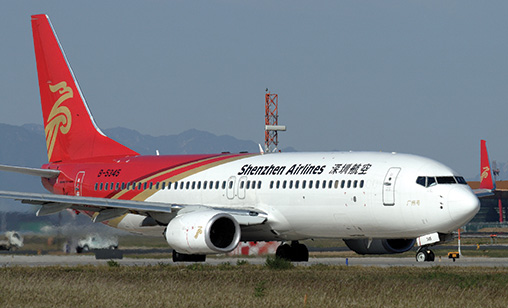News Backgrounder
Mainland regulator names and shames airline sinners
September 1st 2016
In an effort to curb malpractice, the CAAC has published its first ever industry blacklist, naming and shaming four executives and a training school in the process, and banning them from the industry for life. Read More »
The three aviation leaders who were added to the list were Zhang Pei, Zhu Nan and Li Qiang, the former president, deputy general manager and general manager of Shenzhen Airlines subsidiary, Henan Airlines. The trio rose to ignominy when it transpired that their lack of oversight and responsibility contributed to, if not caused, inadequate training and unsafe operations at the domestic airline, which led to the crash of Henan Airlines flight VD8387 on the night of August 24, 2010. The Embraer E190 aircraft hit the ground some 800 metres short of the runway at Yichun Airport in Northeast China’s Heilongjiang Province amid dense fog. The aircraft broke apart and caught fire, killing 42 of the 96 passengers on board. The CAAC attributed the accident to pilot error caused by insufficient training, funding and oversight.
 |
| Three executives of the airline’s subsidiary, Henan Airlines, accused of operational negligence |
The fourth executive to be publicly shamed is Ding Bangxin, general manager of Hebei Jinyan General Aviation, a pilot training school near Shijiazhuang. He was piloting a light training aircraft in the summer of 2013 when he ran out of fuel and had to make an emergency landing approximately 11 km from the nearest airfield. Ding coaxed his subordinates at the flight school into keeping the incident under wraps by disassembling the light aircraft in secrecy inside a storehouse and attempting to delete ATC recordings.
Tianjin’s Civil Aviation University of China (CAUC) Chaoyang Flight Academy was also added to the list after it tried to conceal a runway incursion incident involving one of its DA40D aircraft at Tianjin Airport that caused a near-miss with a Tianjin Airlines Embraer coming in to land. The CAAC has since grounded all training aircraft at the flight school.
The regulator said it would update the executive blacklist regularly on its official website.
As the CAAC is clamping down on dishonest industry leaders, passengers who misbehave also will face tougher sanctions. In August, the CAAC published a new draft amendment to the Civil Aviation Law in China to include fines of 50,000 yuan ($7,515) if passengers compromise civil aviation safety or “disturb order”. Included under those terms are 14 types of undesirable behaviours, including using a mobile phone, even in airplane mode, smoking, forcibly occupying seats, blocking passage ways and gates, breaking into airports and planes, physically harming a crew member, other staff or fellow passengers.
More changes to the regulations governing the use of mobile phones would appear to be forthcoming. A law to amend the use of electronic devices on board is underway and the norms will be relaxed by the end of this year or in early 2017, Zhu Tao, director of the air transportation division at the CAAC has said. The decision is more than three years after onboard mobile phones were cleared by the U.S. Federal Aviation Administration and the European Aviation Safety Agency.
Once approved, mobile phone and Internet inflight usage are expected to open the door to billions of dollars in e-commerce opportunities in addition to giving an airline another way of differentiating itself from its competitors.
“From a business perspective, we definitely hope that there will be a breakthrough in the policy review,” Zhang Chi, a deputy director at China Eastern Airlines has said. “While I let passengers browse the Internet for free, I can at the same time profit from advertisements and onboard shopping. There will be a big positive return.”
Mainland carriers still have a lot to learn when it comes to inflight connectivity. Among the “Big Three” state-controlled airlines – Air China, China Eastern Airlines and China Southern Airlines – China Eastern and China Southern only offer data usage on a fraction of their long-haul fleets, while Air China does not offer the service at all.